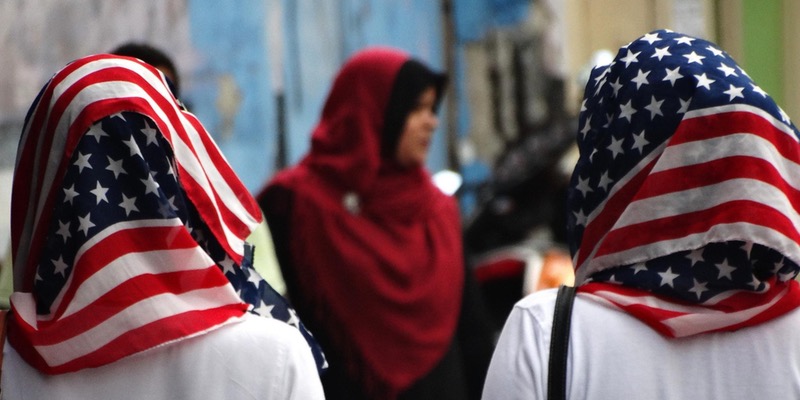The Wall
We want them to be part of the collective American experience, but hold onto their culture and faith. Recently I picked up my 14-year-old daughter after school, when she had stayed late to attend a meeting for girls interested in trying out for her high school’s soccer team. She had played five years for private club teams on and off and was considering getting involved with high-school sports. I sensed immediately something was wrong when she got in the car, and we drove in silence all the way home.
Parked in our garage, I asked her, “So are you going to tell me what is wrong?” She sat in silence, trying to control herself and her emotions. “Come on,” I said. “What is it?”“They’re all so … so … white! All the girls at that meeting were part of some group that I could never be part of. They were in their shorts, all sitting together. They looked at me like who are you? What are you doing here? I felt like such an outsider.”
Never Alone
I reminded her that on her club teams, she often was the only brown girl there, and the only one who, upon my insistence, wore leggings underneath her shorts (some things never change). That though things felt awkward at the start of every season, she found her way to becoming part of the team. I told her not to let others push her around, even in her own mind. That she was strong and perfect just as she was.
“I know, Mamma,” she told me. “But this was different. There was a wall. I could feel it.”I thought back to what my folks would try and convey to me in how they raised me, encouraged me, and in what they did and didn’t allow me to do. We assimilated wherever my parents felt it appropriate—watching college hockey games on Friday and Saturday nights with the whole of Grand Forks, joining the track team in junior high (still wearing my sweats), playing in band and jazz band.
Changing Our Tune
The practice of our faith was also maintained, with (among other things) gathering for our ritual prayers as a family at home and maintaining a halal diet in a landscape where buying halal meat and products was an enormous challenge. But in some ways, our religion was something we did quietly. The hijab was hardly seen back then, at least in the Midwestern communities I frequented. “Be unapologetically Muslim” was not something I heard at all growing up. The message was to be quietly, not loudly, Muslim.
But it’s different today. I am teaching my children to be unapologetically Muslim and American. That they have as much right to be who they are outwardly and inwardly as anyone else in this country. They are responsible for themselves and to be good citizens and human beings of this country and this earth. And they do not need to be apologetic for whatever evils and transgressions others may commit in their cruel twisting of the Muslim faith.
Say Our Names
I lay the examples of women like the Olympic fencer and medal winner Ibtihaj Muhammad, or Dalia Mogahed, a prolific speaker and the director of research at the Institute for Social Policy and Understanding, in front of my kids. My husband and I include them in local interfaith and public-service efforts and take them to political events to learn about the campaigns of potential state representatives.
I tell them of their maternal grandparents, who struggled to find their footing in this country more than four decades ago and ultimately succeeded, and their paternal grandparents, who recently immigrated and became citizens of the United States, so we could all live together and help support each other and our eldest son, who has autism.
My messaging to them is to promote self-confidence and self-worth in hopes of alleviating the feeling of being “otherized,” something I internally struggled with in my childhood. This is why my daughter’s experience at soccer tryouts took me aback. Because, I realized, there is still much more work to be done.
Published with kind permission from The Atlantic.

